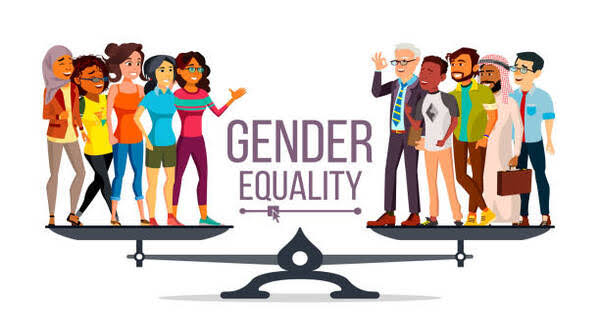Education stands as powerful catalyst for advancing gender equality empowering individuals and transforming societies. In Nigeria, country rich in cultural diversity yet grappling with gender disparities education plays pivotal role in challenging norms, promoting inclusivity and fostering opportunities for all genders. This exploration delves into multifaceted ways education contributes to gender equality. It addresses key aspects from access and quality to empowerment and societal change.
Education is fundamental to achieving gender equality. It provides individuals with knowledge skills and opportunities to challenge gender stereotypes. Advocating for equal rights and participating fully in socio-economic development are critical outcomes. In Nigeria, where gender disparities persist across various sectors education emerges as critical tool for dismantling barriers. It promotes equitable opportunities for women and girls.
Access to quality education remains significant challenge for many girls in Nigeria. This is particularly true in rural and marginalized communities. Factors such as poverty cultural norms early marriage and inadequate infrastructure often hinder girls' enrollment and retention in schools. Addressing these barriers requires targeted interventions. These include policy reforms community engagement and investments in girls' education initiatives aimed at increasing enrollment rates. Ensuring equitable access to educational opportunities is also critical.
Improving Educational Quality and Relevance
Beyond access, the quality and relevance of education are crucial for promoting gender equality. In Nigeria, efforts to enhance curriculum content, teacher training, and school facilities contribute to creating inclusive learning environments that address the specific needs and aspirations of both girls and boys. By integrating gender-sensitive teaching methods and promoting gender-responsive pedagogy, educators can challenge stereotypes, promote positive role models, and inspire students to pursue diverse educational and career pathways without gender bias.
Empowering Women and Girls Through Education
Education empowers women and girls by equipping them with knowledge, skills, and confidence to make informed decisions, assert their rights, and actively participate in social, economic, and political spheres. In Nigeria, educated women are more likely to delay marriage, plan their families, and contribute to household incomes, thereby breaking the cycle of poverty and fostering economic independence. By investing in girls' education, Nigeria can unlock the potential of its female population, driving sustainable development and promoting gender equality across generations.
Promoting Leadership and Participation
Education cultivates leadership skills and promotes women's participation in decision-making processes at all levels of society. In Nigeria, efforts to promote women's leadership in politics, business, academia, and community development are essential for achieving gender-balanced representation and addressing issues that affect women's rights and well-being. By nurturing a pipeline of educated and empowered female leaders, Nigeria can leverage diverse perspectives and talents to drive inclusive growth and social progress.
Challenging Harmful Practices and Cultural Norms
Education serves as a platform for challenging harmful practices and cultural norms that perpetuate gender inequality, such as female genital mutilation (FGM), child marriage, and gender-based violence. By promoting gender-sensitive education and raising awareness about human rights, gender equality, and women's empowerment, educators and community leaders can initiate dialogues and collective actions to dismantle entrenched barriers and promote positive social change.
Engaging Men and Boys as Allies
Promoting gender equality requires engaging men and boys as allies and advocates for change. Education plays a pivotal role in sensitizing boys and young men to issues of gender equality, promoting positive masculinity, and fostering respectful relationships based on equality and mutual respect. In Nigeria, initiatives that promote gender-sensitive education and empower boys to challenge stereotypes and discriminatory practices contribute to building a more inclusive and equitable society for all genders.
Addressing Challenges and Barriers
Despite progress, achieving gender equality through education in Nigeria faces numerous challenges, including inadequate funding for education, teacher shortages, cultural resistance to girls' education, and persistent socio-economic disparities. Addressing these challenges requires sustained investments in education infrastructure, policy reforms, community partnerships, and targeted interventions to promote gender-responsive education and ensure equal opportunities for all.
International Support and Collaboration
International support and collaboration are essential for advancing gender equality in Nigeria through education. Partnerships with global organizations, donor agencies, and civil society groups can provide technical assistance, funding, and best practices to strengthen educational systems, empower women and girls, and promote gender-responsive policies and programs.
Conclusion: Advancing Gender Equality Through Education
In conclusion, education serves as a cornerstone for advancing gender equality in Nigeria by promoting access, quality, empowerment, and societal change. By investing in girls' education, promoting gender-sensitive teaching practices, and challenging harmful norms and practices, Nigeria can accelerate progress towards achieving the Sustainable Development Goals (SDGs), particularly Goal 5 on gender equality. As Nigeria continues its journey towards inclusive development and social justice, education remains a powerful vehicle for empowering women and girls, transforming communities, and building a more equitable and prosperous future for all.
Education not only transforms individual lives but also drives collective progress towards a society where gender equality is not only achievable but actively pursued and celebrated.
